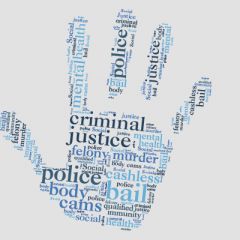This May’s Illinois Bar Journal cover story examines the state’s sweeping criminal justice reforms signed into law earlier this year by Gov. Pritzker. The IBJ interviewed defense attorneys, prosecutors, and others who reflected on the legislation. “Some people view it as, ‘They threw every reform into this sausage maker, and this is what came out,’” Stephen Baker, a retired Cook County public defender and member of the Illinois State Bar Association’s Criminal Justice Section Council, told the IBJ. “Some people take the position that, if you wanted a massive change, the time to do it is now. People are just fed up with the conduct of the police. And the train is leaving the station; if you don’t want to get on, get out of the way.” Others spoke optimistically about the reforms: “The breadth of the bill is one of its strong points,” says Jerrod Williams, a judicial clerk and member of the ISBA Steering Committee on Racial Inequality. “Solving the problems of crime and law enforcement requires a multi-front approach. I don’t believe law enforcement alone—that is, prosecuting offenders—is in and of itself a solution to crime. It’s a piece of the solution.”





